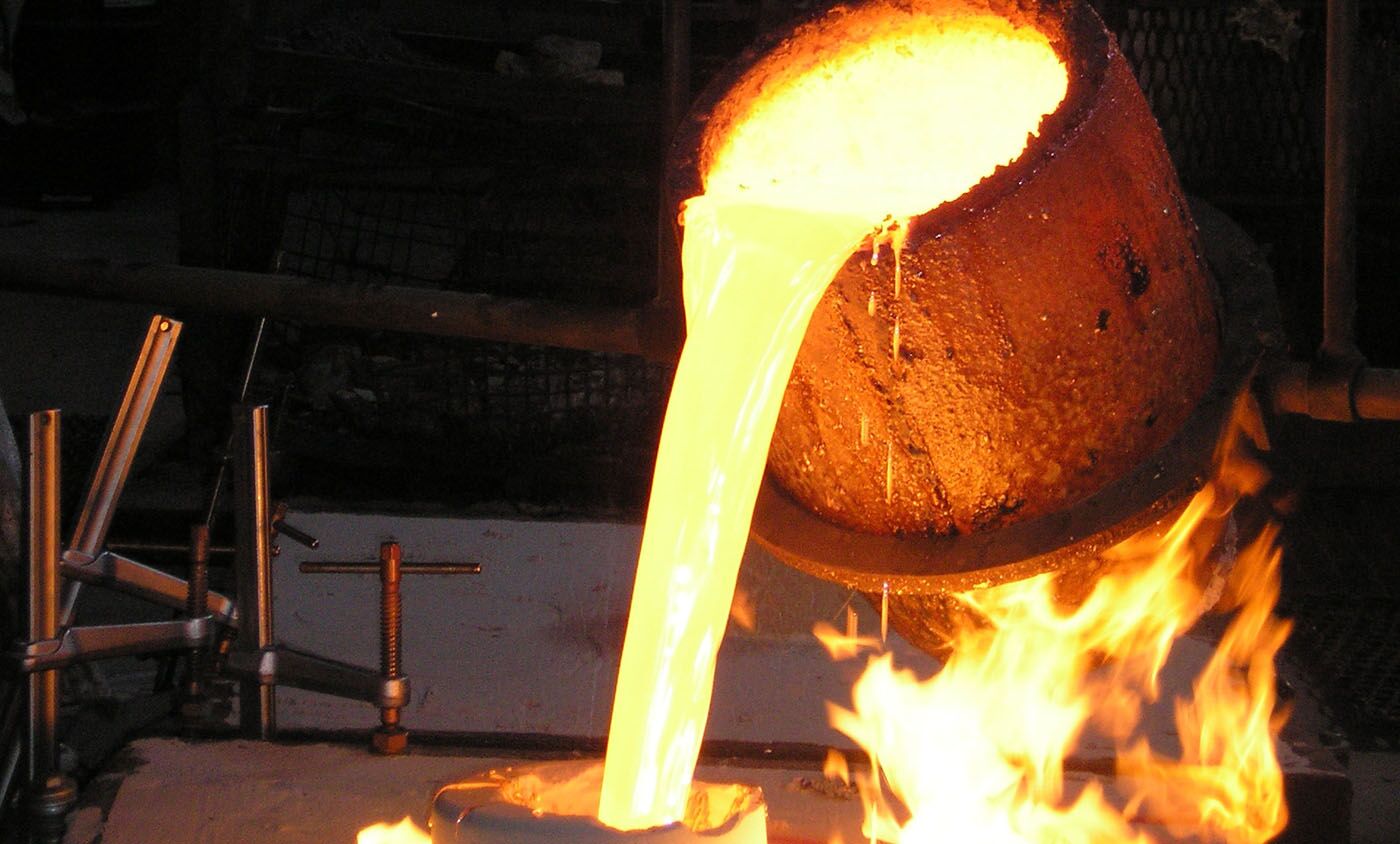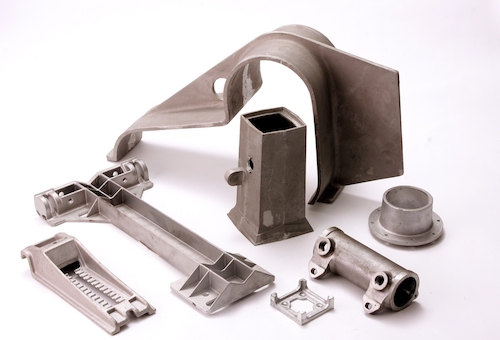How an Aluminum Casting Company contributes to sustainability in industries
Finest Practices for Upkeep and Applications in the Light Weight Aluminum Foundry Market: A Thorough Summary
Keeping tools in the light weight aluminum factory market is vital for functional success. Regular examinations and predictive upkeep can significantly minimize downtime and boost security. Advanced modern technologies, such as IoT and information analytics, play an essential duty in this process. Recognizing the complete scope of ideal practices needs a better evaluation of certain techniques and their impacts on performance. What are the important elements that add to a reliable upkeep structure?
Value of Regular Maintenance in Aluminum Foundries
Regular upkeep plays an important function in the reliable procedure of light weight aluminum foundries. By systematically inspecting and servicing equipment, shops guarantee peak efficiency and longevity of machinery. Regular maintenance activities, such as lubrication, cleaning, and part replacement, help stop unanticipated break downs that can result in pricey downtime.
Routine checks enhance workplace security by recognizing possible dangers prior to they intensify right into significant issues. Tools that is well-kept operates better, resulting in enhanced item quality and minimized waste. In addition, adherence to a structured upkeep routine can sustain conformity with industry laws, thus promoting a reputation for integrity and quality within the marketplace.
Executing Anticipating Upkeep Methods
Predictive upkeep methods take the principles of regular maintenance a step even more by leveraging information analytics and advanced tracking technologies. In light weight aluminum factories, these strategies allow operators to prepare for devices failures prior to they happen, thereby reducing unintended downtimes and optimizing operational performance. By using sensors and IoT devices, real-time data can be accumulated on equipment performance, permitting for the identification of prospective problems with anticipating analytics.
Optimizing Melting and Putting Procedures
Efficient melting and putting processes are essential for making best use of productivity and assuring the quality of aluminum castings. To enhance these processes, factories should focus on exact temperature level control during melting, as this directly affects the metallurgical homes of the alloy. Making use of sophisticated melting innovations, such as induction and resistance melting, can boost energy effectiveness and lower cycle times.
Moreover, executing automated putting systems minimizes human mistake and maintains consistency in the putting procedure. Proper mold prep work, consisting of adequate preheating, is necessary to avoid thermal shock and boost mold durability.

Enhancing Security Methods in Shop Workflow
Prioritizing safety and security in aluminum shop operations is essential for safeguarding employees and assuring an effective environment. Reliable safety and security methods consist of normal training sessions that emphasize the relevance of personal protective devices (PPE), such as headgears, gloves, and goggles. In addition, the establishment of clear emergency procedures is vital in handling prospective accidents.
Routine inspections of tools and machinery help determine dangers prior to they intensify right into severe concerns. Executing a robust reporting system motivates employees to connect safety and security worries without worry of consequence. Moreover, fostering a culture of safety and security guarantees that every employee comprehends their function in maintaining a safe workplace.
Additionally, you could check here guaranteeing correct ventilation and tracking air quality can minimize direct exposure to dangerous fumes and dirt. By reinforcing these techniques, light weight aluminum foundries can substantially minimize the threat of accidents and produce an atmosphere where workers feel valued and secure, inevitably enhancing total operational performance.
Leveraging Modern Technology for Improved Effectiveness
Making use of innovative modern technology has ended up being significantly necessary for aluminum factories aiming to improve functional efficiency. Automation and robotics play an important function in enhancing manufacturing processes, decreasing labor expenses, and minimizing human mistake. Implementing real-time surveillance systems allows for the continuous assessment of devices performance, allowing positive upkeep and lowering downtime.
The assimilation of data analytics gives beneficial insights into operational operations, promoting far better decision-making and resource allotment. For example, predictive analytics can recognize potential failures prior to they happen, more optimizing upkeep timetables.
In addition, taking on advanced melting and spreading modern technologies boosts power performance and product return, which are fundamental for sustainability in the sector. By accepting these technological improvements, aluminum foundries can not only boost performance yet also keep an one-upmanship in a significantly requiring market go right here (Casting Foundry). Eventually, leveraging innovation is crucial in driving technology and boosting total functional performance within the market

Frequently Asked Questions
What Are Common Indicators of Devices Wear in Aluminum Foundries?
Usual indications of tools wear in aluminum foundries include unusual noises, decreased efficiency, increased vibration, overheating components, leakages, and visible deterioration. These indications frequently signal the need for upkeep or possible substitute to stay clear of expensive downtime.
How Can I Train Staff for Effective Upkeep Practices?
To train personnel for efficient maintenance methods, one can implement hands-on workshops, establish extensive handbooks, encourage mentorship programs, and perform routine assessments to examine abilities and understanding, guaranteeing all workers comprehend upkeep methods thoroughly.
What Are the Ecological Rules for Light Weight Aluminum Foundries?
Light weight aluminum factories undergo various environmental laws, including exhausts control, waste management, and source conservation. Compliance assurances marginal ecological impact, promoting sustainability while adhering to local, national, and international environmental requirements and guidelines.
Exactly How Do Factories Manage Waste and Recycling of Light weight aluminum?
Foundries take care of waste and recycling by applying systems for accumulating scrap aluminum, making use of sophisticated separation innovations, and collaborating with reusing centers to assure efficient healing procedures, thus lessening ecological influence and promoting sustainability within the sector.
What Are the Prices Linked With Applying Advanced Technologies?
Applying sophisticated innovations in foundries sustains significant costs, including preliminary investment, training, and maintenance expenditures. However, the long-lasting advantages, such as increased performance and minimized waste, often validate these expenditures, leading to improved success.
Regular upkeep plays a crucial function in the efficient operation of aluminum check my blog foundries. In aluminum factories, these techniques enable operators to anticipate tools failures prior to they take place, therefore minimizing unexpected downtimes and maximizing operational efficiency. Making use of sophisticated technology has actually ended up being significantly essential for light weight aluminum factories intending to boost operational performance. Usual indications of devices wear in light weight aluminum foundries consist of uncommon sounds, decreased performance, raised vibration, overheating parts, leaks, and visible deterioration. Carrying out advanced technologies in foundries incurs considerable costs, consisting of first financial investment, training, and maintenance expenditures.